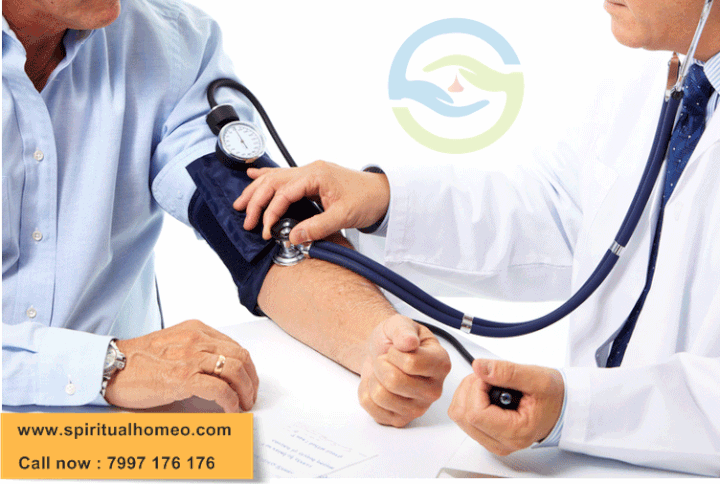High Blood Pressure And Low Blood Pressure
What is blood pressure?
When your heart beats, it pumps blood round your body to give it the energy and oxygen it needs. As the blood moves, it pushes against the sides of the blood vessels. The strength of this pushing is your blood pressure. If your blood pressure is too high, it puts extra strain on your arteries (and your heart) and this may lead to heart attacks and strokes.
What is high blood pressure?
You probably have high blood pressure (hypertension) if your blood pressure readings are consistently 140 over 90, or higher, over a number of weeks.
You may also have high blood pressure if just one of the numbers is higher than it should be over a number of weeks.
If you have high blood pressure, this higher pressure puts extra strain on your heart and blood vessels. Over time, this extra strain increases your risk of a heart attack or stroke.
High blood pressure can also cause heart and kidney disease, and is closely linked to some forms of dementia.
What is low blood pressure?
Many people worry about low blood pressure (hypotension), but probably don't need to.
Some people have a blood pressure level that is lower than normal. In general this may be good news - because the lower your blood pressure is, the lower your risk of stroke or heart disease. However, in a few cases, having low blood pressure can cause problems, so you might need to speak to your doctor or nurse.
What are the symptoms of hypertension?
Hypertension is generally a silent condition. Many people won’t experience any symptoms. It may take years or even decades for the condition to reach levels severe enough that symptoms become obvious. Even then, these symptoms may be attributed to other issues.
Symptoms of severe hypertension can include:
headaches
shortness of breath
nosebleeds
flushing
dizziness
chest pain
visual changes
blood in the urine
These symptoms require immediate medical attention. They don’t occur in everyone with hypertension, but waiting for a symptom of this condition to appear could be fatal.
The best way to know if you have hypertension is to get regular blood pressure readings. Most doctors’ offices take a blood pressure reading at every appointment.
If you only have a yearly physical, talk to your doctor about your risks for hypertension and other readings you may need to help you watch your blood pressure.
For example, if you have a family history of heart disease or have risk factors for developing the condition, your doctor may recommend that you have your blood pressure checked twice a year. This helps you and your doctor stay on top of any possible issues before they become problematic.
What causes high blood pressure?
There are two types of hypertension. Each type has a different cause.
Primary hypertension
Primary hypertension is also called essential hypertension. This kind of hypertension develops over time with no identifiable cause. Most people have this type of high blood pressure.
Researchers are still unclear what mechanisms cause blood pressure to slowly increase. A combination of factors may play a role. These factors include:
Genes: Some people are genetically predisposed to hypertension. This may be from gene mutations or genetic abnormalities inherited from your parents.
Physical changes: If something in your body changes, you may begin experiencing issues throughout your body. High blood pressure may be one of those issues. For example, it’s thought that changes in your kidney function due to aging may upset the body’s natural balance of salts and fluid. This change may cause your body’s blood pressure to increase.
Environment: Over time, unhealthy lifestyle choices like lack of physical activity and poor diet can take their toll on your body. Lifestyle choices can lead to weight problems. Being overweight or obese can increase your risk for hypertension.
Secondary hypertension
Secondary hypertension often occurs quickly and can become more severe than primary hypertension. Several conditions that may cause secondary hypertension include:
kidney disease
obstructive sleep apnea
congenital heart defects
problems with your thyroid
side effects of medications
use of illegal drugs
alcohol abuse or chronic use
adrenal gland problems
certain endocrine tumors
Diagnosing high blood pressure
Diagnosing hypertension is as simple as taking a blood pressure reading. Most doctors’ offices check blood pressure as part of a routine visit. If you don’t receive a blood pressure reading at your next appointment, request one.
If your blood pressure is elevated, your doctor may request you have more readings over the course of a few days or weeks. A hypertension diagnosis is rarely given after just one reading. Your doctor needs to see evidence of a sustained problem. That’s because your environment can contribute to increased blood pressure, such as the stress you may feel by being at the doctor’s office. Also, blood pressure levels change throughout the day.
If your blood pressure remains high, your doctor will likely conduct more tests to rule out underlying conditions. These tests can include:
urine test
cholesterol screening and other blood tests
test of your heart’s electrical activity with an electrocardiogram (EKG, sometimes referred to as an ECG)
ultrasound of your heart or kidneys
These tests can help your doctor identify any secondary issues causing your elevated blood pressure. They can also look at the effects high blood pressure may have had on your organs.
During this time, your doctor may begin treating your hypertension. Early treatment may reduce your risk of lasting damage.
High blood pressure: Tips for prevention
If you have risk factors for hypertension, you can take steps now to lower your risk for the condition and its complications.
Add healthy foods to your diet
Slowly work your way up to eating more servings of heart-healthy plants. Aim to eat more than seven servings of fruits and vegetables each day. Then aim to add one more serving per day for two weeks. After those two weeks, aim to add one more serving. The goal is to have ten servings of fruits and vegetables per day.
Adjust how you think of the average dinner plate
Leafy greens. Potassium helps your kidneys get rid of more sodium through your urine. ...
Berries. Berries, especially blueberries, are rich in natural compounds called flavonoids. ...
Red beets. ...
Skim milk and yogurt. ...
Oatmeal. ...
Bananas. ...
Salmon, mackerel, and fish with omega-3s. ...
Seeds
Cut sugar
Set weight loss goals



+1.svg)
